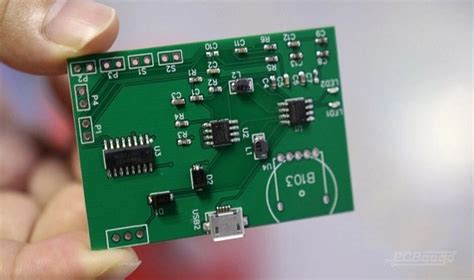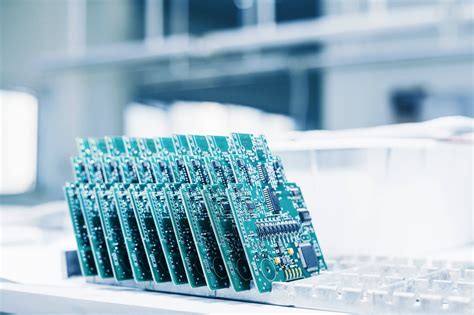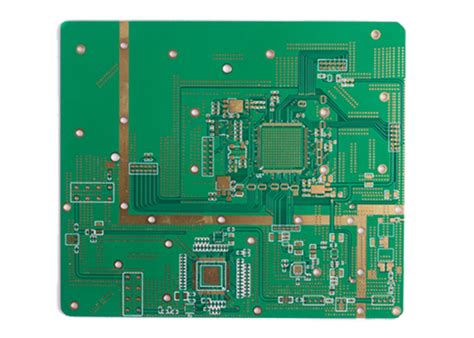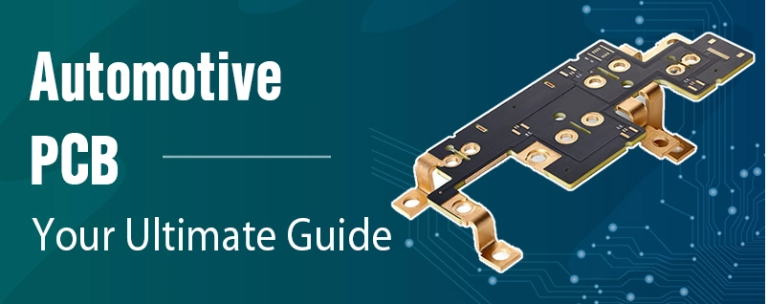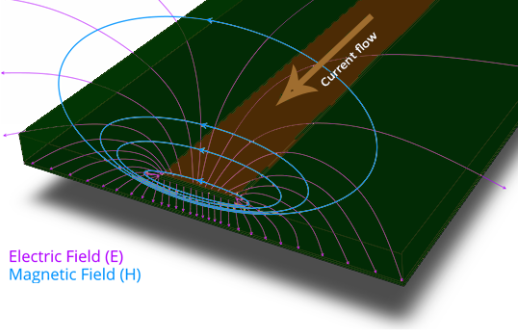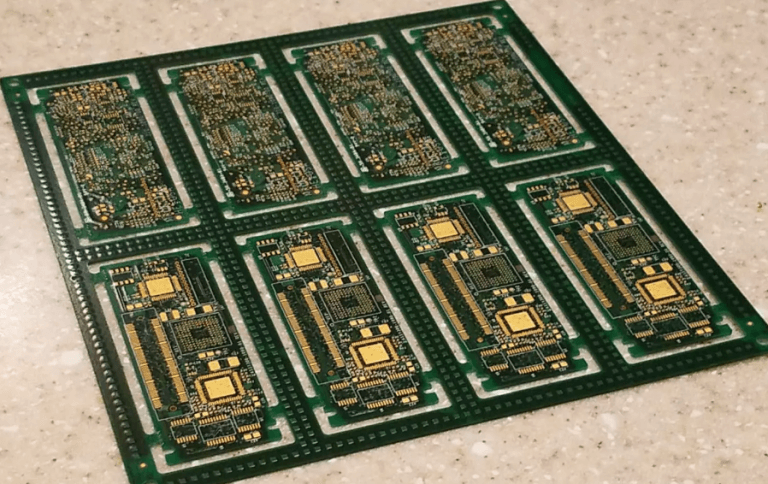Turnkey PCB Manufacturing: Simplifying Your Production Workflow
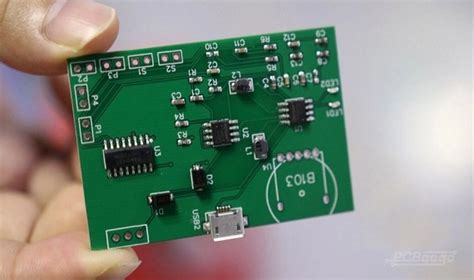
Key Takeaways
Turnkey PCB manufacturing offers a holistic approach to electronics production, integrating design, PCB assembly (PCBA), component sourcing, testing, and logistics into a seamless workflow. By consolidating these stages under a single provider, businesses eliminate fragmented processes, reduce administrative overhead, and accelerate time-to-market. A core advantage lies in the efficiency of end-to-end solutions, which minimize risks associated with supply chain disruptions and compatibility issues. For instance, PCBA services within a turnkey model ensure precise component placement and rigorous quality checks, directly addressing common pain points like solder defects or mismatched parts.
Tip: When evaluating turnkey partners, prioritize those with transparent communication channels and proven expertise in high-mix, low-volume (HMLV) production—this flexibility is critical for scaling prototypes to full-scale manufacturing.
Cost savings are another cornerstone, as bulk material procurement and optimized labor allocation lower per-unit expenses without compromising reliability. Advanced design-for-manufacturability (DFM) practices further enhance yield rates, while certifications like ISO 9001 and IPC-A-610 compliance guarantee adherence to industry standards. By leveraging turnkey PCB manufacturing, companies can focus on innovation rather than operational complexities, ensuring that products meet both performance benchmarks and market demands efficiently.
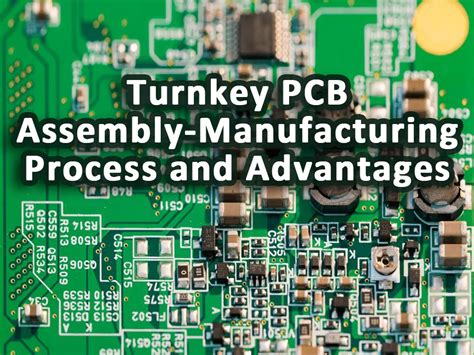
Introduction to Turnkey PCB Manufacturing and Its Importance
Turnkey PCB manufacturing represents a comprehensive approach to electronics production, where a single provider manages the entire process—from design and prototyping to PCB assembly (PCBA), testing, and final delivery. This end-to-end solution eliminates the need for coordinating multiple vendors, reducing complexities and risks associated with fragmented workflows. By integrating design validation, component sourcing, and quality control under one roof, turnkey services ensure seamless transitions between stages, enabling businesses to focus on innovation rather than logistical challenges.
The importance of this model lies in its ability to accelerate time-to-market while maintaining stringent quality standards. Traditional manufacturing often involves delays due to miscommunication between design teams, fabrication houses, and PCBA partners. In contrast, turnkey providers leverage unified project management tools and established supplier networks to streamline timelines. For instance, automated component procurement minimizes shortages, while in-house testing labs identify defects early, preventing costly rework.
A key advantage of turnkey solutions is their scalability. Whether producing small batches for prototyping or large volumes for mass production, the integrated workflow adapts to demand without compromising efficiency. Below is a comparison of traditional vs. turnkey approaches:
| Stage | Traditional Approach | Turnkey Approach | Benefits |
|---|---|---|---|
| Design | Multiple revisions across vendors | Collaborative design-for-manufacturability | Reduced iteration cycles |
| Fabrication | Separate PCB fabrication partner | In-house fabrication with real-time updates | Faster turnaround |
| PCB Assembly | Outsourced to third-party PCBA service | Integrated assembly with component management | Lower risk of mismatched components |
| Testing | External testing facilities | End-of-line testing within the same facility | Immediate defect resolution |
| Logistics | Multi-vendor coordination | Single-point accountability for shipping | Simplified inventory tracking |
By consolidating expertise, turnkey manufacturing reduces overhead costs associated with managing disparate teams. Additionally, economies of scale in material procurement and optimized production schedules enhance cost-efficiency. For industries like automotive, aerospace, or medical devices—where precision and reliability are non-negotiable—the turnkey model offers a strategic pathway to maintain competitiveness in fast-evolving markets.
Understanding the Turnkey PCB Manufacturing Process
The turnkey PCB manufacturing process is designed to simplify electronics production by integrating every stage—from design to delivery—under a single provider. This approach begins with a collaborative design phase, where engineers refine schematics and layout files to meet technical specifications while optimizing manufacturability. Once the design is finalized, the provider manages component sourcing, leveraging established networks to procure high-quality materials, including specialized parts for PCB assembly (PCBA). This eliminates the need for clients to coordinate with multiple suppliers, reducing risks of delays or mismatched components.
Next, the PCBA phase involves mounting components onto the bare board using surface-mount technology (SMT) or through-hole methods, followed by rigorous testing to ensure functionality. Automated optical inspection (AOI) and in-circuit testing (ICT) are commonly employed to detect defects early, minimizing rework. A key advantage of turnkey services is their ability to handle post-assembly processes—such as conformal coating, enclosure integration, and final quality checks—seamlessly. By consolidating these steps, manufacturers reduce cross-vendor dependencies, accelerating timelines and maintaining consistency.
Moreover, turnkey PCB manufacturing emphasizes supply chain transparency, allowing clients to track progress in real-time while adhering to compliance standards like IPC or ISO. This end-to-end oversight ensures cost predictability and scalability, whether producing prototypes or high-volume batches. For businesses prioritizing speed and precision, partnering with a turnkey PCB provider transforms complex workflows into a streamlined, risk-mitigated operation.
Key Components of a Turnkey PCB Solution
A comprehensive turnkey PCB manufacturing service integrates multiple stages of production into a cohesive workflow, ensuring seamless transitions from design to delivery. At its core, this approach includes PCB assembly (PCBA), which combines fabrication, component sourcing, and testing under one roof. Design support is a critical starting point, where engineers collaborate with clients to optimize layouts for manufacturability, reducing errors and delays. Material procurement follows, leveraging established supplier networks to secure high-quality components at competitive prices while mitigating supply chain risks.
The PCB fabrication phase employs advanced technologies to produce boards with precision, whether for simple single-layer designs or complex multilayer configurations. Once fabricated, the PCBA process begins, involving surface-mount technology (SMT), through-hole insertion, and soldering. Automated optical inspection (AOI) and functional testing ensure each assembly meets rigorous quality standards. Real-time communication tools enable clients to monitor progress, providing transparency and enabling swift adjustments if needed.
Post-assembly, thorough validation—including environmental stress testing and electrical performance checks—guarantees reliability. Finally, logistics management ensures timely global distribution, often with options for inventory storage or direct shipping. By unifying these elements, turnkey PCB manufacturing eliminates fragmented workflows, reduces administrative overhead, and accelerates production cycles, making it an indispensable solution for industries prioritizing speed, quality, and scalability.
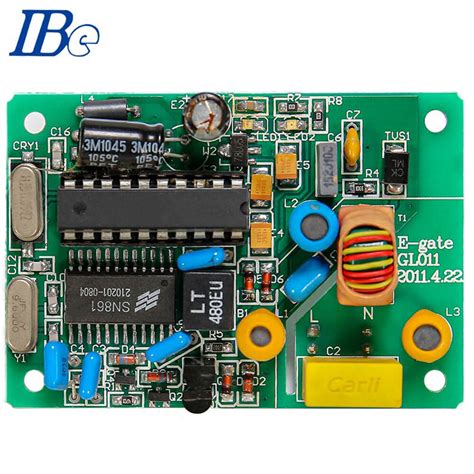
Advantages of Streamlined Production Workflows
Adopting turnkey PCB manufacturing offers significant benefits for businesses seeking to optimize their production workflows. By integrating design, material procurement, PCB assembly, testing, and logistics under a single provider, companies eliminate the complexity of managing multiple vendors. This end-to-end approach ensures seamless coordination between stages, reducing administrative overhead and minimizing delays caused by miscommunication. For instance, PCBA (Printed Circuit Board Assembly) processes are synchronized with component sourcing, enabling faster turnaround times without compromising quality.
A streamlined workflow also enhances supply chain efficiency. Turnkey services leverage established partnerships with suppliers to secure high-quality materials at competitive prices, mitigating risks like component shortages or price fluctuations. Advanced quality assurance protocols, including automated optical inspection (AOI) and functional testing, are embedded throughout the production cycle to detect defects early. This proactive quality control reduces rework costs and ensures compliance with industry standards.
Moreover, time-to-market is dramatically shortened as design iterations, prototyping, and mass production are handled cohesively. Engineers can focus on innovation rather than logistical challenges, while real-time project tracking tools provide visibility into every phase. Scalability is another advantage—whether producing small batches or high volumes, turnkey PCB manufacturing adapts to demand shifts without requiring operational overhauls. By consolidating expertise and resources, businesses achieve cost-efficiency, reliability, and faster delivery—key drivers in today’s competitive electronics landscape.

Cost-Efficiency and Quality Assurance in Turnkey Services
Turnkey PCB manufacturing integrates design, procurement, PCB assembly, and testing into a seamless workflow, ensuring both cost-efficiency and rigorous quality standards. By consolidating these stages under a single provider, businesses eliminate the logistical complexities and hidden expenses of managing multiple vendors. For instance, bulk material procurement reduces component costs, while optimized production processes minimize waste. Advanced PCBA (printed circuit board assembly) technologies, such as automated pick-and-place systems and precision soldering, further enhance efficiency while maintaining consistency across high-volume orders.
Quality assurance is embedded at every step, from design validation to final inspection. State-of-the-art testing equipment, including automated optical inspection (AOI) and X-ray analysis, identifies defects early, preventing costly rework. Turnkey providers also adhere to industry certifications (e.g., ISO 9001, IPC-A-610), ensuring compliance with global standards. By leveraging end-to-end oversight, these services mitigate risks such as component shortages or misalignments between design and manufacturing—common pain points in fragmented workflows.
Cost savings extend beyond production. Streamlined supply chain management reduces lead times, while integrated logistics lower shipping and handling expenses. Additionally, PCB assembly expertise ensures optimal material selection, avoiding over-specification or underperformance. For example, a turnkey partner might recommend cost-effective alternatives for non-critical components without compromising functionality.
The synergy between PCBA precision and scalable processes enables businesses to achieve predictable pricing, even for complex projects. Real-time project tracking and transparent reporting further empower companies to monitor budgets and timelines proactively. This holistic approach not only safeguards quality but also transforms capital expenditure into a predictable operational cost, aligning with long-term financial planning. By entrusting the entire workflow to a turnkey expert, organizations can focus on innovation while relying on a partner committed to delivering high-quality, cost-effective solutions.

How Turnkey PCB Manufacturing Reduces Time-to-Market
By integrating design, procurement, PCB assembly, and testing into a single managed workflow, turnkey PCB manufacturing eliminates fragmented processes that often delay production. Traditional methods require coordinating multiple vendors for tasks like component sourcing, PCBA (printed circuit board assembly), and quality checks, which can lead to miscommunication, logistical bottlenecks, and extended lead times. In contrast, a unified turnkey approach ensures seamless transitions between stages, from prototyping to final product delivery. Advanced PCB assembly lines equipped with automated pick-and-place systems and precision soldering technologies accelerate production while minimizing human error. Additionally, suppliers in a turnkey model often maintain just-in-time inventory for critical components, reducing wait times for material availability. Rigorous in-process inspections and automated testing protocols, such as AOI (automated optical inspection) and functional testing, further streamline validation without compromising quality. This end-to-end oversight not only shortens the production cycle but also allows businesses to focus on design innovation and market strategy rather than operational hurdles. For industries like consumer electronics or IoT devices, where rapid iteration is key, turnkey PCB manufacturing ensures that products meet stringent deadlines while maintaining cost-efficiency—translating directly to a competitive edge in fast-paced markets.
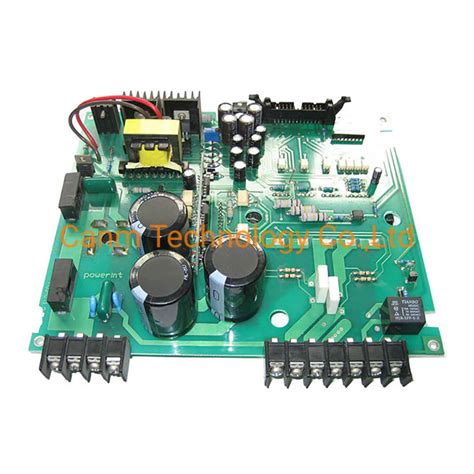
Choosing the Right Turnkey PCB Manufacturing Partner
Selecting a reliable turnkey PCB manufacturing partner is critical to achieving seamless integration of design, PCB assembly, and testing. A qualified provider should offer comprehensive PCBA services, combining expertise in material procurement, fabrication, and assembly to eliminate bottlenecks. Key considerations include their technical proficiency in handling complex designs, adherence to industry standards like IPC-A-610, and the ability to source high-quality components efficiently. Look for partners with robust supply chain management systems to mitigate risks of delays or shortages, especially for specialized materials.
Transparent communication is essential. A strong partner provides real-time updates through integrated platforms, enabling collaboration on design-for-manufacturability (DFM) feedback to optimize production. Certifications such as ISO 9001 or UL listing further validate their commitment to quality assurance and regulatory compliance. Additionally, evaluate their scalability—whether they support low-volume prototyping and high-volume runs without compromising turnaround times.
Cost-efficiency hinges on their ability to streamline workflows. For instance, bundling PCB assembly with testing and logistics reduces overhead, while advanced processes like automated optical inspection (AOI) ensure defect-free outputs. Prioritize partners offering end-to-end traceability, as this minimizes errors and accelerates time-to-market. Finally, assess their environmental practices, such as adherence to RoHS directives, to align with sustainability goals. By balancing technical expertise, operational agility, and transparency, businesses can forge partnerships that drive innovation and reliability in turnkey PCB solutions.
Case Studies: Success Stories in Turnkey PCB Production
Real-world examples highlight how turnkey PCB manufacturing transforms complex production workflows into streamlined processes. One case involves a consumer electronics startup that leveraged end-to-end solutions to accelerate its product launch. By outsourcing PCB assembly and PCBA to a single provider, the company eliminated delays caused by coordinating multiple vendors. The integrated approach ensured seamless transitions from design validation to component sourcing, automated testing, and final packaging. This reduced their time-to-market by 40% while maintaining strict quality benchmarks.
Another success story features an automotive sensor manufacturer facing challenges in scaling production. Partnering with a turnkey PCB service provider allowed them to consolidate prototyping, high-volume PCB assembly, and compliance testing under one roof. The provider’s expertise in design-for-manufacturability (DFM) optimizations minimized redesign cycles, cutting material waste by 15%. Additionally, real-time supply chain monitoring mitigated component shortages, ensuring uninterrupted production during global semiconductor shortages.
In the medical device sector, a company developing portable diagnostic equipment benefited from turnkey solutions that combined rigid-flex PCBA with ISO 13485-certified processes. The provider’s in-house capabilities, from precision soldering to electromagnetic compatibility (EMC) testing, ensured compliance with stringent regulatory standards. By avoiding fragmented workflows, the project achieved 30% cost savings and passed FDA audits on the first attempt.
These cases underscore how turnkey PCB manufacturing bridges gaps between design and delivery. Whether for startups or established enterprises, unified services in PCB assembly, testing, and logistics create agile, risk-mitigated pathways from concept to market-ready products.
Conclusion
In today’s fast-paced electronics industry, turnkey PCB manufacturing stands out as a holistic approach that simplifies complex production workflows. By integrating design, PCB assembly (PCBA), testing, and logistics under a single provider, businesses eliminate fragmented processes that often lead to delays or quality inconsistencies. This end-to-end model not only accelerates time-to-market but also ensures tighter control over costs and compliance with industry standards. The seamless coordination between PCB fabrication and PCBA stages reduces the risk of errors, while advanced quality assurance protocols—such as automated optical inspection (AOI) and functional testing—guarantee reliability in the final product.
Moreover, partnering with a skilled turnkey PCB manufacturing provider allows companies to focus on innovation rather than logistical challenges. Scalability becomes more manageable, as suppliers adapt to fluctuating demand without compromising on cost-efficiency or lead times. Case studies across industries—from consumer electronics to automotive systems—demonstrate how unified solutions minimize supply chain bottlenecks and enhance product lifecycle management. Ultimately, adopting a turnkey approach is not just about streamlining production; it’s about building a competitive edge in an era where agility and precision define success.
Frequently Asked Questions
What is included in a turnkey PCB manufacturing service?
A turnkey PCB manufacturing service covers the entire production workflow, from design validation and PCB assembly to component sourcing, testing, and final delivery. This end-to-end approach eliminates the need to coordinate with multiple vendors, ensuring seamless integration of PCBA (Printed Circuit Board Assembly) processes.
How does turnkey manufacturing differ from traditional PCB production?
Traditional methods often involve managing separate suppliers for design, fabrication, and assembly. In contrast, turnkey solutions consolidate these stages under one provider, reducing logistical delays and minimizing errors. This integrated model enhances efficiency, especially for complex projects requiring advanced PCB assembly techniques.
What are the primary benefits of using a turnkey service?
Key advantages include faster time-to-market due to streamlined workflows, cost-efficiency from bulk material procurement, and consistent quality assurance through standardized processes. Additionally, turnkey PCB manufacturing reduces administrative overhead, allowing teams to focus on innovation rather than supply chain management.
How do turnkey services ensure quality in PCBA production?
Reputable providers implement rigorous testing protocols, such as automated optical inspection (AOI) and X-ray verification, at every stage. They also adhere to industry certifications (e.g., ISO 9001) and employ skilled technicians to oversee PCB assembly, ensuring compliance with design specifications and reliability.
Can turnkey manufacturing accommodate small-batch or prototype orders?
Yes. Many providers offer scalable solutions, supporting both low-volume prototypes and high-volume production. This flexibility is ideal for startups and enterprises alike, enabling rapid iterations without compromising cost-efficiency or PCBA quality.
What factors should I consider when choosing a turnkey partner?
Evaluate their expertise in PCB assembly, component sourcing networks, and quality control systems. Look for transparent communication, proven turnaround times, and the ability to handle specialized requirements like high-density interconnect (HDI) or mixed-technology PCBA.
How does turnkey manufacturing reduce time-to-market?
By integrating design, fabrication, and PCB assembly, providers eliminate delays caused by vendor handoffs. Advanced planning tools and in-house logistics further accelerate production, ensuring faster delivery of fully tested, market-ready products.
Ready to Simplify Your PCB Production?
Explore how our turnkey PCB manufacturing services can optimize your workflow. Click here to learn more about our end-to-end solutions tailored for speed, quality, and reliability.

